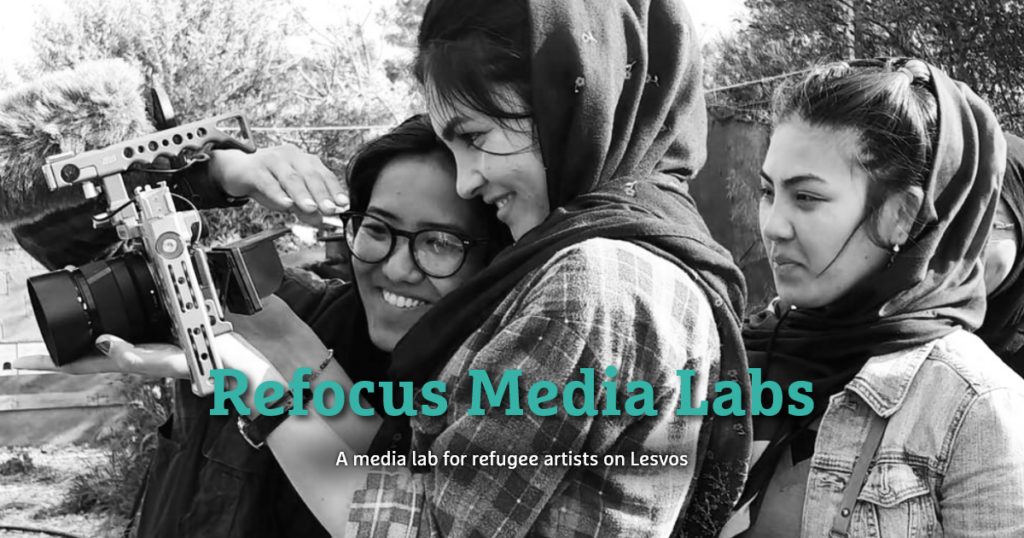During my master’s thesis, on artistic creation related to migration, I dealt with migration-related themes and especially the imaginary conveyed by migration-related narratives.
My focus shifted in particular from a construction of the self within institutional frameworks and asylum-seeking processes, to another type of narrative, that which is conveyed through works of art, especially film creation and music-making. So, I met and interviewed some filmmakers and musicians, I spent time with them and tried to understand their imaginaries and their desire to tell their stories.
I’ve lived in Athens for the past 6 months and I know quite well the country as I’ve been there also three years ago. I am quite aware about the socio-economic problems in the country. However, I am also conscious of the fact that Lesvos, being an island (and also quite far from the mainland) constitutes a world apart, far from Athens and therefore presents different specificities and problems.
Still speaking of narrative, it is also through the media that a certain idea of the migrant and migration is conveyed. Too often we see images of crowded boats, people without names and without faces. On the contrary, a certain humanitarian narrative implies the migrant as a suffering and poor person: then the images linger on painful faces completely out of context.
I know from people that worked there, that in Lesvos there is an organization, Refocus Media Labs, that tries to engage migrants to tell their stories through photo and filmmaking. The idea of being able to tell stories from one’s own point of view is particularly interesting, powerful and urgent in the context of Lesvos, where stereotypical narratives have been created, as it is also one of the most remote points in Europe, off the economic and political radar, which in my opinion has contributed even more to forgetfulness and stereotyping.
For me, it would be very interesting to see what kind of stereotypes still persist on the island, but on the other hand to go beyond that, to question and try to understand locally what other narratives there are respect to what it means to live on an island, a place on the margins and remote, a place that is only present in the media when talking about migration. How people deal with that? What kind of dwelling dynamics there are, what kind of balance between locals who have lived there for a long time, tourists and newcomers? What do these people think of themselves, how do they define themselves and how do they self-represent themselves?

(photo from the Refocus Media Labs site https://refocusmedialabs.org/)
Hi Annagrazia, Thank you for this input! I hope we can get back to learning more about this work and the perspectives you bring. I also believe you are right about island culture and life being something of its own, although I have never lived for a long time on an island myself. And in Kalloni, I guess the narratives and life experiences may seem even more like a ‘world apart’ (although center and periphery always depends on where one sees things from), as it is even further off from Mytiline . Which may perhaps allow you to experience different narratives and perspectives. I often think of these as concentric circles where one can experience big questions without jumping into the most intense zones; in Lesvos a lot of mediated narrative concerns refugees and how EU policies are manifested on its perimeters, yet how has ordinary life in Lesvos – if there is such a thing – changed over the last years? What are the effects of global changes when it comes to local communities?